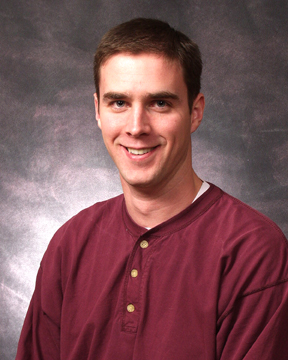 Mike Axtell |
CASTL was created by The Carnegie Foundation for the Advancement of Teaching in 1998 to establish and refine standards for the critical review of teaching and learning by faculty members in college and university classrooms. CASTL also attempts to establish new settings and forms for the examination of teaching and learning so that faculty members can exchange information and build upon the work of their colleagues.
“The Carnegie Scholars Program supports the work of distinguished faculty who are contributing to an emerging scholarship of teaching and learning,” said Lee Shulman, president of The Carnegie Foundation for the Advancement of Teaching. Such work is essential, Shulman explained, because teaching tends to be a private act, limited to the teacher and students; it is rarely evaluated by professional peers. “The result is that those who engage in innovative acts of teaching rarely build upon the work of others. We work to make teaching public, subject to critical evaluation, and usable by others,” he said.
Carnegie Vice President Pat Hutchings, who co-directs the higher education program of CASTL, said, “Our purpose is to support work that will foster significant, long-lasting learning for all students, enhance the practice and profession of teaching and bring to teaching the recognition and reward afforded to other forms of scholarship.”
The Carnegie Scholars Program is open to faculty from all types of institutions, and draws applicants from around the world. This year’s applicants were selected from the many different academic disciplines that fall under the broad umbrella of liberal learning. It was this commitment to liberal education that forged the collaboration between The Carnegie Foundation for the Advancement of Teaching and the Center of Inquiry in the Liberal Arts.
The Center of Inquiry is a focal point for research and dissemination of work in and about liberal learning, and serves as a catalyst for reshaping liberal arts education in the 21st century. Through the work of the Center and its resident scholars, the relevance and efficacy of the liberal arts is explored, tested, and promoted. With the support of Wabash College and a wide community of collaborators, the Center helps to ensure that the nature and value of a liberal arts education are widely understood, and to reestablish the central place of the liberal arts in American higher education. Supported by Lilly Endowment Inc., the Center of Inquiry brings together disparate and sometimes fragmented groups whose good work is strengthened by opportunities for in-depth and extended conversations and by access to resources for research and practice. It has four broad objectives: to bring together diverse audiences of those committed to the liberal arts; to explore and discuss in-depth issues and questions raised by and about liberal arts; to research, test, and practice the best of liberal arts approaches; and, to promote and advocate for the liberal arts to ever broader audiences.
The 2003-2004 Center of Inquiry/Carnegie Scholars are: • Michael Axtell, Mathematics, Wabash College (Crawfordsville IN) • José Feito, Psychology/Interdisciplinary Studies, Saint Mary’s College of California (Moraga CA) • Laura Greene, English Language and Literature, Augustana College (Rock Island IL) • James Harnish, Interdisciplinary Studies/History, Northern Seattle Community College (Seattle WA) • Jasmin Lambert, Theater, The College of William and Mary (Williamsburg VA) • Wendy Ostroff, Psychology/Cognitive Science, Sonoma State University (Rohnert Park CA) • John Ottenhoff, English, Alma College (Alma MI) • David Reichard, History, Law and Society, California State University Monterey Bay (Seaside CA)
During the 2003-2004 academic year, Center of Inquiry/Carnegie Scholars investigate and document work on issues in the teaching and learning of their academic field with a special emphasis on liberal education. While working primarily in their own institutional settings, they also spend two summer sessions together at the Foundation and several periods at Wabash College. During the academic year, scholars may also present their work at professional conferences, attend workshops and institutes, and collaborate with other Scholars.
The Carnegie Scholars Program is only one component of CASTL, which involves teachers in elementary and secondary schools as well as faculty members from higher education. The higher education component also includes the CASTL Campus Program (coordinated by the American Association for Higher Education) and the CASTL Scholarly and Professional Societies Program.
Founded by Andrew Carnegie in 1905 and chartered in 1906 by an act of Congress, The Carnegie Foundation for the Advancement of Teaching is an independent policy and research center with a primary mission “to do and perform all things necessary to encourage, uphold, and dignify the profession of the teacher.” The Foundation, located in Menlo Park, Calif., fulfills this mission through its contributions to improvements in education policy and practice.
MEDIA CONTACTS: Gay Clyburn The Carnegie Foundation for the Advancement of Teaching 650/566-5162 clyburn@carnegiefoundation.org
Jim Amidon Wabash College 765/361-6364 amidonj@wabash.edu
For more information see: